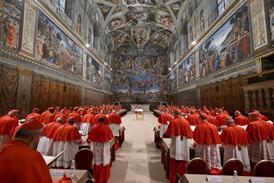Production teams at the BBC's Natural History Unit in Bristol will be first BBC staff to test a BBC Technology production system designed to modernise the way programmes are made by the corporation, writes Will Strauss.
As part of a massive project called One Vision, the NHU has adopted BBC Technology's Colledia for Production system which will help to make production more efficient and collaborative by reducing reliance on tape, streamlining processes, controlling workflow and making basic content easier to exchange.
The first project to use the digital platform will be the multimillion pound Planet Earthdocumentary. The use of the new system, announced at IBC, means Planet Earthstaff will be excused tedious tasks such as rekeying metadata. Another advantage is that notes and content created remotely, using PDAs for example, can be plugged directly into the system's infrastructure. Using open file formats to exchange audio-visual material, the system will eventually remove videotape from the production process. The next step will be to add a
large repository to allow content to be stored indefinitely and safeguarded for the future.
"These are the first steps towards a true digital future," said Michele Romaine, director of production modernisation. "We're going to industrialise the production process within the BBC without restricting creativity."
BBC Northern Ireland is being lined up as the next to adopt the new technology.
OneVision is a joint project between BBC production, technology direction, information and archives and research and development and will be rolled out across the whole of the corporation.


























No comments yet